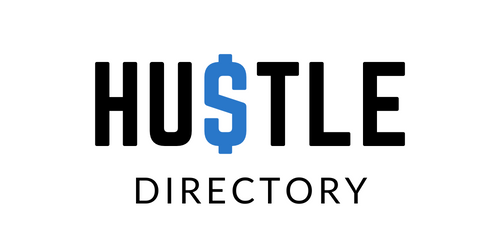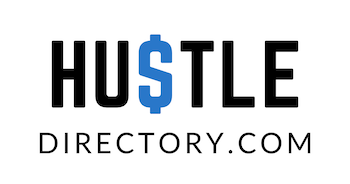Remember that exciting feeling of getting a better job? Maybe you got a promotion from within the company, but statistically, people get better bumps in pay by changing their employers entirely. It’s more of a life-changing experience to find a new company to work for, and that’s exactly where a Freelance Recruiter comes in.
Employers are competing for talent more than ever before, and convincing that talent to come on board is no easy task. That’s why these companies work rely on freelance recruiters to fill their positions, in exchange for as much as tens of thousands of dollars per hire.
Have your ears perked up yet? If not, then it’s because you haven’t yet grasped how much money this line of work can make you. Let’s dive in and explore the nuances of freelancing recruiting and whether it’s a good business opportunity or not.
Table of Contents

What is a Freelance Recruiter?
If you haven’t picked up on it yet, a freelance recruiter is someone who helps companies find qualified employees for the vacant positions they need to fill.
You might be used to this being taken care of by your company’s HR team. For some companies, posting on your local job board can be enough. Other companies source junior employees from university and college campuses. But, if you’re looking for a technically-proficient employee with specific qualifications and experience, it can be harder since you’re dealing with a smaller pool of potential applicants.
Today’s job landscape is no longer so simple. The 2020 pandemic led to people quitting their jobs in record numbers, and job vacancies are near record highs.
That’s bad news for competitive industries with limited talent pools, and good for freelance recruiters.
Freelance recruiters work with companies looking for employees with specific skills & qualifications, and then hand those leads off almost like a bounty hunter. The more skilled the prospect needs to be, generally equates to a higher payday. It’s even common practice for recruiters to receive a percentage of the starting salary as their payment (which can be tens of thousands of dollars for Senior IT or management positions).
Sounds great, right? Well, it’s not necessarily so easy.
But, once the ball is rolling you can start an online business, work remotely, and earn big paychecks all with little money invested.
Freelance Recruiter Vs Recruitment Agency Vs Remote Recruiter
A freelance recruiter is a self-employed recruiter while a remote recruiter usually works in-house for a company or as part of a virtual recruitment agency.
There are benefits to working as a remote recruiter (like having a stable income and health benefits), but if you’re looking to maximize your earning potential, freelance recruiting is the way to go.
In-house recruiters are limited with the talent pool that they can work with. Because they’re constrained by their company’s culture, ethos, and requirements, their choices often are limited in terms of diversity.
Meanwhile, recruiters at an agency are contractually obligated to work with whomever their agency’s clients are. They can’t choose their clients plus there’s the additional pressure to fulfill quota positions. They may receive bonuses, but the key performance indicators will be clearly laid out ahead of time.
A freelance recruiter, however, is an independent contractor. This means a freelance recruiter has complete freedom to choose the companies they want to work with.
Freelance recruiters can set their own guidelines and processes, and rely on less traditional tactics to get the job done.
A good freelance recruiter will share a lot of the same qualities as a good sales representative. An ability to sell someone on a vision for how their lives can be improved, and a love for the chase.

So, What Exactly Does a Freelance Recruiter Do?
As a freelance recruiter, your job is to secure clients with staffing needs, and then to find them qualified job candidates that match what they’re looking for.
This means you have to understand what your clients’ needs are to ensure that the applicants you’re screening are a good fit for them.
A freelance recruiter will comb through websites, online job boards, databases, referrals, social media, and even cold call if it means connecting with a potential candidate. There’s certainly a lot of networking involved, and as with most outreach, the majority of the people you talk to won’t be interested.
Once the freelance recruiter has a shortlist of clients, he’ll begin to qualify them against the criteria the client is looking for. This usually involves a few emails, a phone interview, and a standardized set of questions.
The candidates that have been qualified will be relayed to the employer, and then the focus will shift towards making them an offer of employment and locking them down.
Whereas an in-house recruiter will want to hire an employee at the lowest rate possible (to save the company money), a freelance recruiter may push to offer a higher wage in the range since they often receive a percentage of the starting salary as payment. This incentivizes freelance recruiters to find awesome candidates and to fill the position with the best person possible.
How Much Does a Freelance Recruiter Make?
Generally, freelance recruiters earn their income through commissions and bonuses, though there can be a retainer or other compensation involved.
As we touched on before, a company will often pay the freelance recruiter a large percentage of the hiree’s starting salary as their compensation. For example, if the job position has a starting salary of $100,000, the freelance recruiter will often get a 10-20% commission ($10,000 – $20,000).
An important thing to note is the alignment of incentives here. Whereas an in-house recruiter will want to hire an employee at the lowest rate possible (to save the company money), a freelance recruiter will usually push to offer a higher wage since they likely receive a percentage of the starting salary as payment.
This incentivizes freelance recruiters to find awesome candidates and to fill the position with the best person possible. Cheap companies don’t take this route.
How much money can you make as a freelance recruiter? That depends entirely on how much you’re able to fill positions, and what companies you work with. But, even filling 1-2 positions a month can earn you a >$100,000 income.
Other Business Opportunities For Freelance Recruiters
There are other opportunities to earn income in the freelance recruitment space that you should be aware of.
Creating digital products can be a way to add a few passive income streams by capitalizing on your knowledge and expertise. An expert freelance recruiter could write an ebook on how to get started in the industry, or how to grow to the next level.
The same applies to creating an online course on how to hire great people. This Udemy course on hiring currently has over 20,000 students meaning that it has likely generated ~$200,000 in income for its creator.
Another possibility is to form a recruitment agency. This involves scaling up your operations by hiring other recruiters to work beneath you and to focus on growing the business as a whole.
If you want to build an audience, you can also look at creating a Youtube channel or blog talking about the industry. A quick Google search and you’ll be able to find many accounts already doing this.
Lastly, if you want something that is a bit more hands-off, you can always look into consulting. Many businesses will have questions about what type of employees they should be looking for, where to find them, and how to create a work environment that is conducive to success. As a consultant, your job involves coming up with the strategy and frameworks, and not the implementation.
Benefits of Becoming a Freelance Recruiter
As with most freelance gigs, one of the biggest benefits is that you can be your own boss and work on your own terms.
You get to choose who you want to work with. You get to choose what time of the day you want to work, and where you want to set up your office.
But, putting aside the freedom aspect, there are also some psychological benefits to being a freelance recruiter.
Freelance recruitment involves a bit of cat-and-mouse. You need to generate leads, sell them on joining your client’s company, and negotiate the hiring terms. When you do fill a position, it can feel extremely satisfying and invigorating. You’ll feel alive. It’s exciting.
Also, you have the opportunity to change people’s lives. You can find clients jobs that excite them, help them acquire a higher salary, and make their families more comfortable. They want to advance their career, and you can help them with that.
As a freelance recruiter, you’ll also receive your own share of professional development. You’ll be able to work on skills like outreach, relationship building, communication, and negotiation. Some former freelance recruiters who transitioned to company management credit their freelancing experience for developing their managerial skills.
Even if you don’t want to jump into it full-time, it can make for a great side hustle.

How to Get Started as a Freelance Recruiter
Technically speaking, anybody can become a freelance recruiter.
You don’t have to be a graduate with a degree in human resources or have a certification from an HR institute. It is, however, an advantage if you have these because this will help you build credibility when you’re just getting started and don’t have any client testimonials to rely on.
It’s also important to think about niching down. You’ll have more authority as a freelance recruiter if you focus on a specific industry, like IT, than if you target clients indiscriminately. For instance, if you’re a freelance recruiter in the tech industry, having previous industry experience will help you spot what tech employers are generally looking for and assess applicants more efficiently.
You can start general, but focus on the niche that you get the best results from after a few months. Some freelance recruiters start with a particular niche. If this is the case, then some experience will definitely help.
So what’s the first step?
Step 1: Keep Your LinkedIn Profile Updated and Optimized
LinkedIn is a highly valuable platform for freelance recruiters because it is a social media for professionals. Millions of users have listed their resumes, their work experience, their location, and more. This makes it one of the best places to find potential clients based on the skills, experience, and location you’re looking for.
Since you’ll be doing some outreach through LinkedIn, it’s important that you polish your profile as much as possible. You want to appear as professional as possible.
This means having a good profile picture, a good cover photo, updating your contact information and work experience, and writing a strong bio.
This builds a good and professional impression of you. Clients will be confident enough to trust you as a freelance recruiter and you will be able to leverage this impression to build new connections and recruit prospective job candidates.
Step 2: Find Clients With Roles That Need Applicants
To get started, you’ll need clients. Given that you’re starting from scratch, you’ll need to be realistic with your rates. Many freelancers start by offering their services for free or by charging a flat, low rate (contingent on success). This idea is to iron out your processes, prove that you can deliver results, and collect positive testimonials.
This is going to rely on your cold outreach skills, and if that makes you uncomfortable, then you might not like this industry much. But, if you’re willing to push through the awkwardness, this is the best way to find a client at the start.
You’ll want to try a few different pitches, contact dozens of businesses, and just get your foot in the door. LinkedIn is a great place to get started, but don’t discount Twitter or Facebook Groups either. Business owners are everywhere — you just have to find them.
Tip: Look for smaller or less competitive companies that need help. Companies that have a high demand for employees or introverted founders can be a good bet.
Don’t forget to look at your personal networks, either. Your first clients might already be on your Facebook friends list, so keep that in mind.
Another idea is to reach out to other recruiters and ask if they need any help filling positions. Established recruiters are often so busy that they don’t mind sharing the commission if you’re able to deliver high-quality leads.
Step 3: Deliver Results & Build Your Portfolio
As a freelance recruiter, your most important job is to deliver results and fill positions. Everything else is secondary.
So, get your feet wet. Start reaching out to candidates and employers. Get some positions filled, and get some metrics on the board. There’s an old saying that is relevant — “first, make it work. Then, make it work better”. And, that’s exactly what you need to do. Make it work, then improve your processes.
Build your network. Form relationships with employers, awesome talent, and even other freelance recruiters.
For building your portfolio, make sure to overdeliver with your clients so that they are sure to give you a positive review afterward. You might be nervous about telling clients your rates (or raising them), but make sure to do it confidently. If you’re worried about charging too much, then think about what else you can do to add value for your clients.
Another crucial aspect is to keep learning. Learn more about the positions you’re trying to fill. Learn more about the industry, best practices, and whatever else you can pick up. Don’t be afraid to send cold emails, and always remember to follow up. Just because someone ignored your email doesn’t mean that they aren’t interested.
Step 4: Build your Brand
When you’re first getting started, all clients are good clients. But, after you’ve gotten some experience under your belt, you want to be more selective.
Pick 1-2 industries to focus on, and only target clients that operate in them. This will help you charge higher rates, since you’re now an expert in recruiting software developers (or whatever) rather than a generalist who is mediocre at everything.
Build your online presence. Use social media to build up your personal brand or the brand of your business. You can also think about content marketing like writing blog articles, speaking on podcasts, or starting a Youtube channel. These are all ways of getting your message out there, and building your authority.
Build a website. Professional businesses have websites, and it will be one of the biggest tools in your arsenal. You can display your portfolio (e.g. “I’ve worked with Microsoft, Tesla, etc.), you can qualify leads (i.e. clarify what types of clients you work with), and you can even take payments.
Also, you may want to look at setting up a legal entity at some point. You don’t need one to be a freelance recruiter, but if you want to expand your business to an agency or simply add extra legal protection, a corporate structure can be a great way to do it.
Step 5: Improve Your Systems
Once everything is running, you want to focus on making it run smoother by improving your systems. After all, a business is little more than a set of systems in perpetual motion.
For example, you’ll need a system for finding clients. If you want to reduce your reliance on cold outreach you can implement a referral program, or come up with a way to generate leads.
Client billing is another aspect that is ripe for systemization. You can have invoices automatically generated, sent to clients, and even send automatic reminders.
You basically want to reduce the friction — the things that slow down or stop you from doing your job — and get things running smoothly from A-Z.
You’ll also need a good system for taking care of your tax liability, since it’s hard to recruit clients from the inside of a jail cell.
Ready to Become a Freelance Recruiter?
That’s it!
Hopefully, you found this article to be an interesting introduction to the world of freelance recruiting.
If you’re interested in getting started, check out our data sheet on becoming a freelance recruiter. We’re doing our best to compile all of the most relevant information in one convenient place for you to access.
And, if you’re interested in other ways to make money online, then check out our Hustles page. We have compiled nearly 200 ways that you can generate an income online, and there are tons of filters to find exactly what you’re looking for. If you like it, all we ask is that you send it to a friend.
Enjoy!










